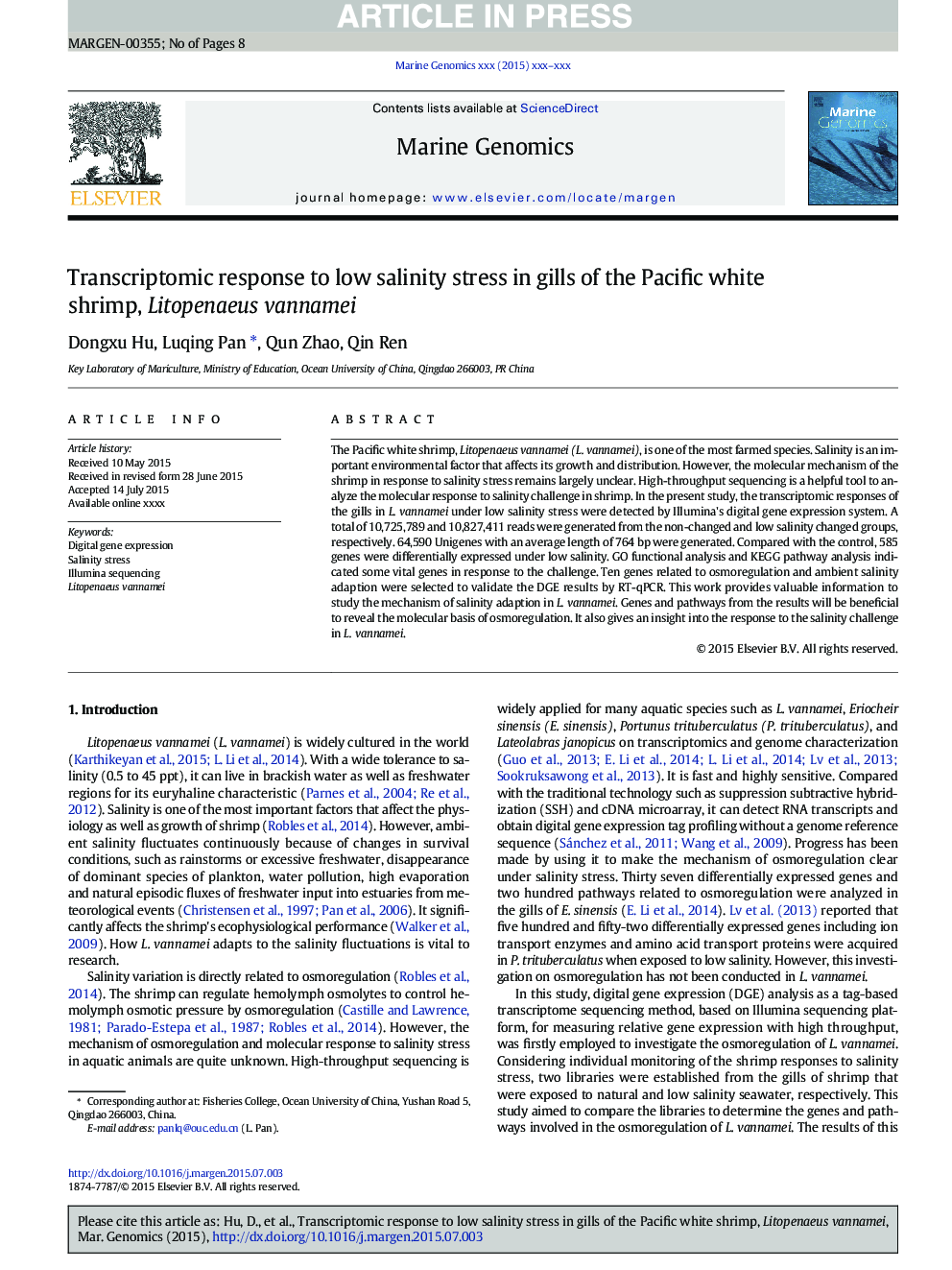| Article ID | Journal | Published Year | Pages | File Type |
|---|---|---|---|---|
| 10877921 | Marine Genomics | 2015 | 8 Pages |
Abstract
The Pacific white shrimp, Litopenaeus vannamei (L. vannamei), is one of the most farmed species. Salinity is an important environmental factor that affects its growth and distribution. However, the molecular mechanism of the shrimp in response to salinity stress remains largely unclear. High-throughput sequencing is a helpful tool to analyze the molecular response to salinity challenge in shrimp. In the present study, the transcriptomic responses of the gills in L. vannamei under low salinity stress were detected by Illumina's digital gene expression system. A total of 10,725,789 and 10,827,411 reads were generated from the non-changed and low salinity changed groups, respectively. 64,590 Unigenes with an average length of 764Â bp were generated. Compared with the control, 585 genes were differentially expressed under low salinity. GO functional analysis and KEGG pathway analysis indicated some vital genes in response to the challenge. Ten genes related to osmoregulation and ambient salinity adaption were selected to validate the DGE results by RT-qPCR. This work provides valuable information to study the mechanism of salinity adaption in L. vannamei. Genes and pathways from the results will be beneficial to reveal the molecular basis of osmoregulation. It also gives an insight into the response to the salinity challenge in L. vannamei.
Related Topics
Physical Sciences and Engineering
Earth and Planetary Sciences
Earth and Planetary Sciences (General)
Authors
Dongxu Hu, Luqing Pan, Qun Zhao, Qin Ren,
